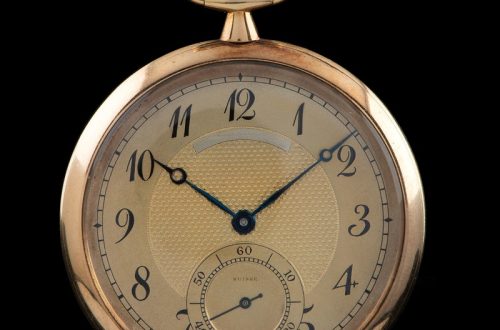For centuries, the wristwatch has served as both a functional tool and a symbol of style. But beneath the polished exteriors lies a silent war waging between two distinct technologies: quartz and mechanical movements. Each boasts unique strengths and caters to different preferences. Let’s delve into the intricacies of these timekeeping titans.
Part 1: Precision and Practicality

Quartz: The Champion of Accuracy:
The cornerstone of a quartz watch is the presence of a tiny yet crucial quartz crystal at its core. When an electric current applies to the crystal, it produces remarkable and consistent vibrations at an incredibly precise frequency. This steady and unwavering vibration forms the bedrock of the watch’s superior timekeeping capabilities, ensuring minimal deviation from accurate timekeeping, typically resulting in mere seconds lost or gained per year. This outstanding precision is especially appealing to individuals who prioritize punctuality and demand reliable timekeeping in their daily lives. Whether it’s for business meetings, travel schedules, or simply keeping track of time with precision, a quartz watch stands as an unbeatable ally, offering unfaltering and impeccable timekeeping that effortlessly aligns with the stringent demands of modern-day lifestyles. Its consistent and reliable performance makes it a trusted companion for those who value punctuality and dependability in their timepieces.
Mechanical: A Touch of Tolerance:
Mechanical watches offer a captivating and intricate interplay of springs, gears, and an escapement to drive their timekeeping mechanism. This complex and finely crafted machinery is a testament to the artistry of traditional watchmaking. However, the reliance on these mechanical components renders the timepiece susceptible to a range of factors that can impact its accuracy. Variations in temperature, the wearer’s level of activity, and even the orientation of the watch can all influence the timekeeping precision of a mechanical watch.

While generally known for their reliability, mechanical watches may periodically require adjustments or maintenance to ensure optimal accuracy. This could involve recalibrating the movement, lubricating the components, or addressing any wear and tear. The need for periodic adjustments adds a layer of involvement and care to owning a mechanical watch, as it necessitates a level of attention and maintenance to uphold its exemplary performance. Many enthusiasts are drawn to the charm and traditional craftsmanship of mechanical timepieces, valuing the maintenance and care as an integral part of the ownership experience, despite these considerations.
Part 2: Power and Maintenance
Quartz: Convenience at Your Fingertips:
Quartz watches are distinguished by their reliance on a battery to power the timekeeping mechanism, with the typical battery lifespan spanning several years. When the battery eventually reaches the end of its operational life, it can be easily replaced, restoring the watch’s functionality. This straightforward and hassle-free process stands as a defining advantage of quartz watches, making them an ideal choice for individuals leading busy lifestyles. The low maintenance requirement and the minimal attention necessitated by the occasional battery replacement align with the preferences of those who seek a timepiece that seamlessly integrates into their daily routines. The convenience and practicality offered by quartz watches, coupled with their dependable timekeeping, position them as a popular choice for individuals who prioritize efficiency and ease of use in their accessories, allowing them to focus more on their endeavors while relying on their timepiece to effortlessly keep them on track.
Mechanical: A Legacy of Craftsmanship:

Automatic mechanical watches harness the wearer’s movement to wind a spring, eliminating the need for batteries. This self-winding mechanism embodies a rich tradition of watchmaking ingenuity. However, for watches that lack this feature, manual winding is necessary to keep them running. Additionally, mechanical movements require periodic servicing by a skilled watchmaker, adding to the cost of ownership.
Part 3: Aesthetics and Emotion
Quartz: A Spectrum of Styles:
Quartz technology has revolutionized the design landscape of watches, enabling an extensive range of possibilities that cater to diverse tastes and preferences. The flexibility of quartz movements allows for an array of design options, from sleek and minimalist styles to bold and colorful choices, ensuring that there is a quartz watch to complement every individual’s taste and budget. The affordability of quartz movements further contributes to their widespread accessibility, making them an attractive option for a broad audience. This accessibility aligns with the varied lifestyles and preferences of consumers, allowing for an inclusive and diverse selection of timepieces that can be seamlessly integrated into different personal styles and fashion choices. As a result, the combination of versatile design options and affordability has solidified quartz watches as a popular and appealing choice for a broad spectrum of individuals seeking both style and functionality in their timepieces.
Mechanical: A Window into Craftsmanship:

Owning a mechanical watch provides an intimate and captivating connection to the artistry and craftsmanship of traditional watchmaking. The intricate dance of gears and the mesmerizing, smooth sweep of the second hand convey a certain mystique and poetry that is inherently alluring. Each glance at the timepiece allows the wearer to appreciate the meticulous labor and skill imbued in its creation, offering a profound sense of connection to the watchmaker’s dedication and the enduring legacy of timekeeping itself. This association with the rich heritage and tradition of watchmaking adds depth and significance to the experience of wearing a mechanical timepiece, creating a deeply personal and meaningful bond. In essence, owning a mechanical watch transcends mere timekeeping, enriching one’s everyday moments with the beauty and artistry encapsulated in the intricate craftsmanship, providing a constant reminder of the timeless dedication and expertise inherent in traditional horology.
Part 4: Choosing Your Champion
Ultimately, the victor in the quartz vs. mechanical battle depends on your individual priorities. For the precision-oriented and time-conscious, a quartz watch reigns supreme. Its unparalleled accuracy and hassle-free maintenance make it a dependable companion. For those who appreciate the finer things and value heritage, a mechanical watch beckons. Its unmatched craftsmanship, history, and the emotional connection it fosters.

Regardless of your choice, both quartz and mechanical watches offer a fascinating journey into the world of timekeeping. So, the next time you wear a timepiece on your wrist, take a moment to appreciate the silent battle being waged beneath the surface – a testament to human ingenuity and our enduring pursuit of precision and beauty.





